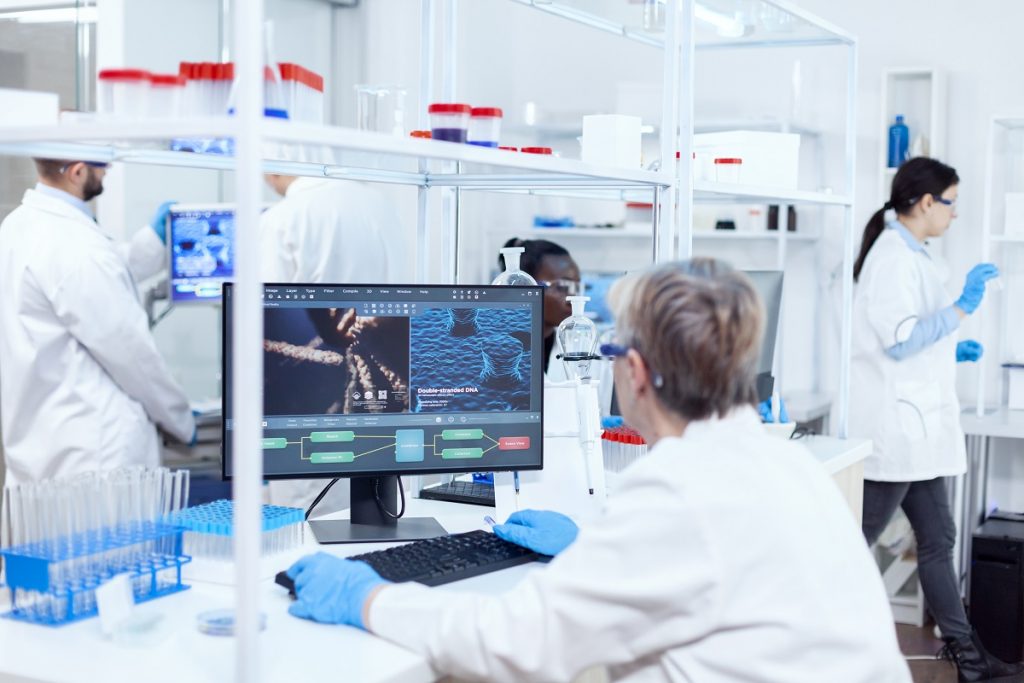Dr Philippa Moore, Consultant Medical Microbiologist at Gloucester Hospitals NHS Foundation Trust discusses how adopting a digital-first approach streamlines pathology services and delivers efficiencies by giving teams more visibility into the pathology process and making the laboratory an information-driven and connected business.
- How could becoming more digitally driven help NHS trusts gain clinical advantage?
Becoming more digitally driven could unlock a range of clinical benefits for trusts. For example, we saw during the pandemic how digital tools enabled NHS trusts to deliver care in new ways, particularly for patients who did not require face-to-face consultations and could receive care virtually. In these cases, technology gave clinicians the tools to remotely interact with their patients, allowing them to see more patients per hour and, simultaneously, boost the accessibility of care for those unable to attend in person.
A digital first approach could also help trusts streamline administrative processes and eliminate inefficiencies. Simplifying data entry demands and automating specific tasks frees up staff time to focus on other tasks requiring more thoughtful input.
And more broadly, boosting the availability of relevant patient data could enhance these digital tools even further, allowing for more effective information sharing throughout the NHS and optimising patient outcomes and quality of care. Some examples include accelerated diagnosis, improved workforce planning, and better research of new treatments.
- During the pandemic, many of the UK’s pathology departments were understaffed as they addressed Covid-related demand. What challenges does this create, and how could technology support?
Pathology departments process millions of tests annually, so spikes in demand can create an overwhelming backlog of tests waiting to be processed. During the pandemic, this was compounded with staffing challenges, leaving many pathology departments stretched very thin, with patients waiting much longer than expected for their lab results.
However, these challenges have encouraged many trusts to turn to technology for support. For example, Laboratory information management systems (LIMS) provide pathology teams with a digital overview of a range of lab processes, reviewing data associated with lab samples, workflows, and experiments. With this added visibility into demand, costs, workflow, equipment usage, and quality measures, teams can quickly identify where backlogs are accumulating and adjust staffing accordingly. These solutions play an important role in encouraging trusts to digitally transform in ways that will better organise their workforce and bolster staff resilience when addressing fluctuations in demand.
-
How has Gloucestershire Hospitals Trust sought to embed more technology into its daily operations?
We’ve sought to embed more technology into our daily operations by looking beyond traditional laboratory information management systems (LIMS), which we previously used, towards a more holistic and resilient solution. While LIMS are effective, they can sometimes fall short in supporting efforts to review operational performance and plan more effectively. Nothing has underscored the need for improved clinical efficiency and workforce planning more than the pandemic.
We worked with InterSystems to deploy its TrakCare® Lab Enterprise to address these concerns. This platform has supported the trust in streamlining clinical pathology pathways that process up to 9 million tests a year and is helping us achieve clinical advantage by providing real-time visibility and traceability of patient tests. For example, we have been able to use InterSystems data to create dashboards which gives us real time information on our laboratory throughputs, helping us swiftly and accurately flex staff accordingly.
-
What are the main benefits you have seen?
The platform has helped drive efficiencies by giving teams more visibility into the pathology process. It makes the laboratory an information-driven and connected business.
This is only the beginning of our digital pathology journey. We look forward to seeing what further improvements can be realised across the department and our hospitals, integrating and working with our existing systems.
Digitising the pathology process has transformed how we operate at Gloucester, and we’re grateful for the hard work of our entire team and our colleagues at InterSystems. We’re now better able to meet spikes and change with agility and flexibility.
-
What do you think needs to happen to stimulate further digital transformation within the NHS?
Upskilling NHS staff to utilise new and emerging forms of healthcare technology is vital for further digital transformation within the NHS. It would be fantastic to see further trusts commit to using their data more effectively, to drive improvement and efficiency. Having a system that makes data accessible is key to this. We have already seen incredible benefits from adopting EPRs in our lab. However, there is still so much training to ensure that our people are well equipped and set up for success in providing digital care in different settings throughout the trust.

